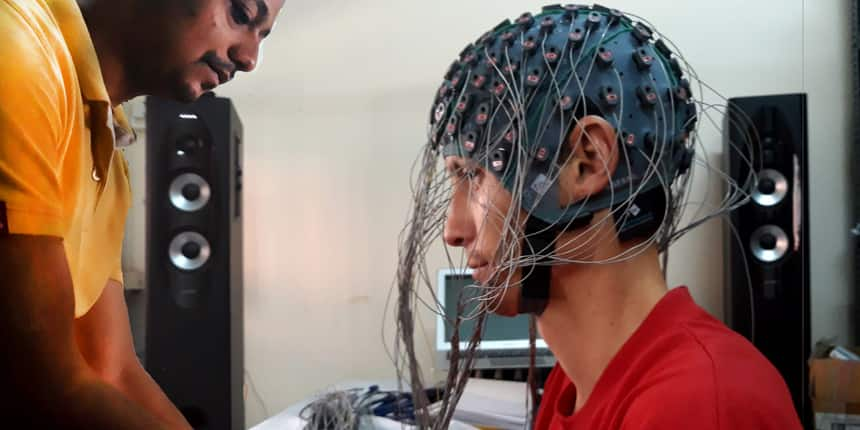IIT Mandi conducts research on why listening to sad music helps in times of sadness
Ishita Ranganath | January 16, 2023 | 03:41 PM IST | 2 mins read
IIT Mandi researchers use EEG to monitor people in different states to answer why people listen to sad music in sadness and why it works.

NEW DELHI: The researchers at Indian Institute of Technology (IIT) Mandi conduct a research on 'tragedy paradox' to give context as to why people listen to sad music in times of sadness. The observations found in the study were have published in an open-access journal PLOS One, and was co-authored by Ashish Gupta, Braj Bhushan, and Laxmidhar Behera.
The research, led by current IIT Mandi director, Laxmidhar Behera used electroencephalography (EEG) to measure the brain activity of twenty people under different conditions focusing on brain regions involved in emotion and memory processing.
Also Read | IIT Mandi hosts Himachal Pradesh 30th children's science congress
The coping mechanism of listening to sad music arises from processing of emotions and memories under the alpha state. “The coping effects are not simply due to the aesthetic appeal of the music, as previously believed, but an inherent property of sad music”, explains PhD scholar, Ashish Gupta.
A total of 20 subjects were used to conduct the study. These individuals has no prior musical training to avoid re-programmed reactions to the selected music. EEG was measured under three states- first, with no input and only the baseline; second, a method called sad autobiographical recall or SAR condition where the participants recalled a sad experience and wrote about it; third, where they were made to listen to an Indian classical raga, Mishra Jogiya Raga.
The researchers found that recalling a sad experience enhances gamma wave activity, while listening to sad music leads to increased alpha brain activity. In addition to this, findings show that the brain activity when listening to sad music is unique and distinct from both the SAR state and the baseline resting state.
The music, Karuna Rasa used to invoke sad emotions, was selected by a panel of five music experts. “The current study is a part of ongoing work of investigating the effect of Indian Raga on Human cognitive functions. This work has significance for music therapy, music training, etc. where music is used or can be used as a therapeutic tool,” said Braj Bhushan.
Explaining their observations, IT Mandi director, Laxmidhar Behera, said, “Listening to Mishra Jogiya Raga (sad music) appears to promote processing of emotions and memories in the brain, through a three- channel framework involving the alpha brain wave. These mechanisms include increased global and local connectivity in brain areas involved in emotion and memory processing, and increased alertness.”
Follow us for the latest education news on colleges and universities, admission, courses, exams, research, education policies, study abroad and more..
To get in touch, write to us at news@careers360.com.